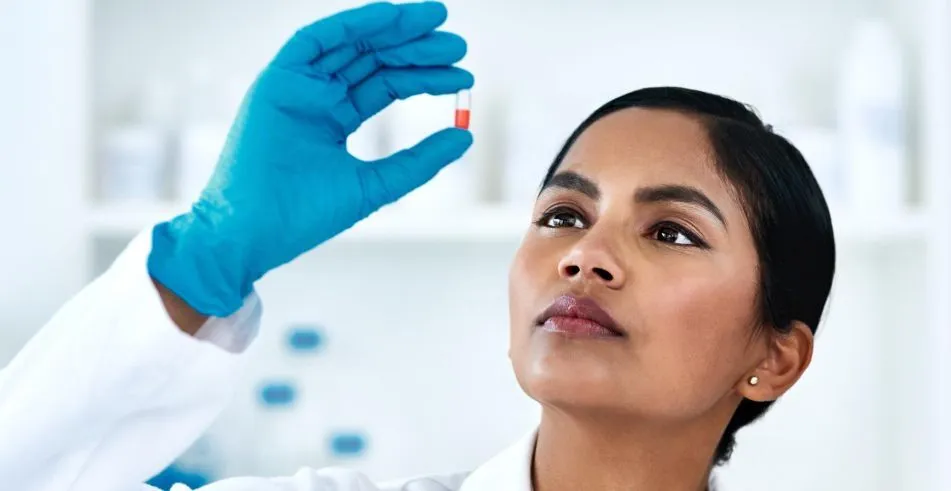OVERVIEW
Throughout the B.Pharm. journey, students will delve into various aspects of pharmacy, including pharmacology, medicinal chemistry, pharmaceutical analysis, and pharmaceutical technology. They will gain hands-on experience in our state-of-the-art laboratories and have the opportunity to intern with leading pharmaceutical companies, preparing them for real-world challenges.

Programme Highlights
Innovating Health
through Pharmacy
The Bachelor of Pharmacy (B.Pharm.) curriculum at Kr Mangalam University is thoughtfully structured to provide students with a comprehensive understanding of pharmaceutical sciences and prepare them for a successful career in the field of pharmacy. Our curriculum is designed to ensure a balance between theoretical knowledge and practical skills, fostering well-rounded pharmacists who can meet the evolving needs of the healthcare industry.
Programme Structure
- Human Anatomy and Physiology I– Theory
- Pharmaceutical Analysis I – Theory
- Pharmaceutics I – Theory
- Pharmaceutical Inorganic Chemistry – Theory
- Communication skills – Theory *
- Remedial Biology/ Remedial Mathematics – Theory*
- Human Anatomy and Physiology – Practical
- Pharmaceutical Analysis I – Practical
- Pharmaceutics I – Practical
- Pharmaceutical Inorganic Chemistry – Practical
- Communication skills – Practical*
- Remedial Biology – Practical*
- Human Anatomy and Physiology II – Theory
- Pharmaceutical Organic Chemistry I – Theory
- Biochemistry – Theory
- Pathophysiology – Theory
- Computer Applications in Pharmacy – Theory *
- Environmental sciences – Theory *
- Human Anatomy and Physiology II –Practical
- Pharmaceutical Organic Chemistry I– Practical
- Biochemistry – Practical
- Computer Applications in Pharmacy – Practical*
- Pharmaceutical Organic Chemistry II – Theory
- Physical Pharmaceutics I – Theory
- Pharmaceutical Microbiology – Theory
- Pharmaceutical Engineering – Theory
- Pharmaceutical Organic Chemistry II – Practical
- Physical Pharmaceutics I – Practical
- Pharmaceutical Microbiology – Practical
- Pharmaceutical Engineering –Practical
- Pharmaceutical Organic Chemistry III– Theory
- Medicinal Chemistry I – Theory
- Physical Pharmaceutics II – Theory
- Pharmacology I – Theory
- Pharmacognosy and Phytochemistry I– Theory
- Medicinal Chemistry I – Practical
- Physical Pharmaceutics II – Practical
- Pharmacology I – Practical
- Pharmacognosy and Phytochemistry I – Practical
- Medicinal Chemistry II – Theory
- Industrial PharmacyI– Theory
- Pharmacology II – Theory
- Pharmacognosy and Phytochemistry II– Theory
- Pharmaceutical Jurisprudence – Theory
- Industrial PharmacyI – Practical
- Pharmacology II – Practical
- Pharmacognosy and Phytochemistry II – Practical
- Medicinal Chemistry III – Theory
- Pharmacology III – Theory
- Herbal Drug Technology – Theory
- Biopharmaceutics and Pharmacokinetics – Theory
- Pharmaceutical Biotechnology – Theory
- Quality Assurance –Theory
- Medicinal chemistry III – Practical
- Pharmacology III – Practical
- Herbal Drug Technology – Practical
- Instrumental Methods of Analysis – Theory
- Industrial PharmacyII – Theory
- Pharmacy Practice – Theory
- Novel Drug Delivery System – Theory
- Instrumental Methods of Analysis – Practical
- Practice School
- Biostatistics and Research Methodology
- Social and Preventive Pharmacy
- Pharma Marketing Management
- Pharmaceutical Regulatory Science
- Pharmacovigilance
- Quality Control and Standardization of Herbals
- Computer Aided Drug Design
- Cell and Molecular Biology
- Cosmetic Science
- Experimental Pharmacology
- Advanced Instrumentation Techniques
- Dietary Supplements and Nutraceuticals
- Project Work
Connecting Talent to Dream Careers
At Kr Mangalam University, we are honored to collaborate with a prestigious network of pharmaceutical companies, healthcare institutions, research organizations, and regulatory bodies, creating a dynamic ecosystem for our Bachelor of Pharmacy (B.Pharm.) programme. Our commitment to providing exceptional education extends to forging strong partnerships with industry leaders in the field of pharmacy.
Career Options
Our Bachelor of Pharmacy (B.Pharm.) programme offers a gateway to a multitude of dynamic and fulfilling career paths within the pharmaceutical and healthcare sectors. Graduates of this programme emerge with a strong foundation and the skills required to thrive in various roles. While there are numerous exciting career possibilities, we highlight four key avenues below:
Programme
Outcomes
Pharmacy Knowledge:
Possess the core and basic knowledge associated with the profession of pharmacy.
01
Thinking Abilities:
Examine issues rationally and logically; shall acquire, evaluate, and synthesize information and knowledge relevant to an identified problem.
02
Planning Abilities:
Demonstrate effective planning abilities including time management, resource management, delegation skills and organizational skills.
03
Professional Identity:
Understand, analyze and communicate the value of their professional roles in society.
04
Modern tool usage:
Create, select, and apply appropriate techniques, resources, and modern engineering and IT tools including prediction and modeling to complex engineering activities with an understanding of the limitations.
05
Pharmacy and Society:
Apply reasoning informed by the contextual knowledge to assess societal, health, safety and legal issues and the consequent responsibilities relevant to the professional pharmacy practice.
06
Environment and sustainability:
Understand the impact of the professional pharmacy solutions in societal and environmental contexts, and demonstrate the knowledge of, and need for sustainable development
07
Professional Ethics:
honor personal values, apply ethical principles in professional and social contexts, and take responsibility for the outcomes associated with the decisions.
08
Individual and team work:
Function effectively as an individual, and as a member or leader in diverse teams, and in multidisciplinary settings.
09
Communication:
Develop good communication skills so as to communicate effectively with the pharmacy community and with society at large.
10
Modern & Usage:
Learn, select, and apply appropriate methods and procedures, resources, and modern pharmacy-related computing tools with an understanding of the limitations.
11
Life-long Learning:
Recognize the need for and have the preparation and ability to engage in independent and life-long learning in the broadest context of technological change. Self-assess and use feedback effectively from others to identify learning needs and to satisfy these needs on an ongoing basis.
12
To produce pharmacy graduates with profound knowledge and high technical skills to meet various aspects in wide areas of Pharmaceutical industry.
01
To enable pharmacy graduates to gain theoretical and practical knowledge in various subjects to discover novel formulation for the benefits of the society.
02
To prepare entrepreneurs in Pharma sector with effective communication skills, teamwork and ethical attitude with high integrity for the betterment of the community and the society.
03
To promote and train the pharmacy graduates towards contribution of health care system and patient counselling for prevention and treatment of diseases.
04
To encourage the pharmacy graduates for lifelong learning and highly competent career prospect related to interdisciplinary pharmaceutical sciences.
05
To impart theoretical & Practical knowledge among students in the various fields of pharmaceutical sciences viz., Pharmaceutics, Pharmaceutical Chemistry, Pharmacology, Pharmacognosy, Biotechnology, Pharmaceutical jurisprudence and Pharmaceutical marketing etc.
01
To develop the skill acquired in various regulatory aspects related to clinical, preclinical and medical devices used for human use. The students will be able to experience hand on manufacturing, packaging of drugs. After completing this course students will be able to work as a skilled pharmacist in manufacturing of drugs and cosmetics.
02
Financial Assistance
K.R. Mangalam University partnered with the leading banks to help you to finance your dream course through Education Loan. You only have to start repaying one year after finishing your course or six months after you get a job.
Sponsored
MBA Degree
100% Sponsored MBA for Outstanding Undergraduates
KRMU takes pride in nurturing the leaders of tomorrow. To honor and encourage academic excellence, we offer a distinctive sponsorship scheme: Exceptional undergraduates have the opportunity to pursue an MBA at KRMU with 100% sponsorship. This initiative is our commitment to investing in the bright minds that have demonstrated remarkable academic achievements during their undergraduate studies.
Embark on an MBA journey without financial constraints and unlock your full potential. At KRMU, we provide more than just an education; we offer a pathway to excellence and success in the business world. Seize this opportunity to transform your academic prowess into a thriving career.
Frequently Asked Questions
Commence Your Journey
in 6 Simple Steps

Complete payment and submit
Pay the required Application Fee
Take an entrance test
K.R. Mangalam University Entrance Examination (KREE)
Appear for interaction
Attend our Faculty-Led Interview.
Get the admission offer
You will receive the offer letter after the successful interaction
Get Enrolled
Be prepared to embark on your journey














